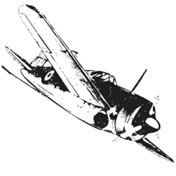As summer gave way to autumn, days shortened fast. 71 Squadron continued to have everything it needed to become a functioning part of the RAF except planes. To say the Americans didn’t take it well would have been one of the bigger understatements in the history of understatements. They drank. They gambled. Stacks of greenbacks and British banknotes changed hands at bridge, at poker, at craps. Then the winners drank some more to celebrate, the losers to drown their sorrows.
Americans didn’t respect authority at the best of times. As week followed planeless week, the times got worse and worse. Walter Churchill was in something like genteel despair, trying to ride herd on men who had no use for him or anyone else connected to the RAF.
“I can talk to you,” he said to A.E. one night when the other Yanks were out carousing. “You’ve got more sense than they do. What am I supposed to do with them?”
“Look, I’m as fed up as they are. Only difference is, I don’t think drinking myself blind is fun,” she answered. “You want to solve everything in a hurry? Get us Spitfires, or even Hurricanes. Give us something worth doing.”
He sent her an Et tu, Brute? look. “I’m trying. By God, I am. But we’re stretched rather thin these days. You may possibly have noticed.”
“You should have known better than to plop pilots down somewhere with nothing to fly—and nothing else to do, either.”
“No doubt,” Churchill said, and let it alone. He didn’t confide in her again, not like that. If he’d wanted a shoulder to cry on, he hadn’t got one.
She defended her fellow Yanks to the flight lieutenant, but she had trouble with them, too. She didn’t like seeing Shorty, Andy, and Red as foul-mouthed and sodden as the rest of the Americans in the Eagle Squadron. But they at least knew her and respected her as a person and as a pilot. The others …
She woke in the wee small hours one morning with weight pressing against the edge of the cot and a hand reaching under the blankets to grab her in places it had no business going. She wasn’t surprised, even if she wished she would have been. She’d expected something of the sort for a couple of weeks now. She was ready if not eager.
Twisting away, she swung open-handed at where she guessed the groper’s head would be. She made a good guess, and connected squarely. She didn’t scream. Instead, she shouted as loud as she could, “Get out of here, you son of a bitch! Get away from me! What the hell do you think you’re doing?”
All the snores and little nighttime noises in the Nissen hut cut off as if sliced by a knife. A startled, confused babble replaced them. In the blackness, someone beat a hasty, fumbling retreat.
Somebody’s cot creaked as whoever it was hopped back into it. A.E. had an idea whose it was, but she wasn’t sure. Part of her wanted to know, so she could either punch the bastard or swear out charges against him. Part of her insisted ignorance would be better. These kinds of problems were part of the reason fighting forces didn’t want to let women join them.
She lay awake till the barracks roused at 0600. Then she looked to see whether anyone had a fresh mouse under one eye or a badly cleaned up bloody nose. She didn’t see any evidence to make her grab someone and drag him up before the squadron. Maybe that was just as well. Maybe.
None of the American men said a word to her about what had happened during the night. The dogs did nothing in the daylight, she thought, mangling her Sherlock Holmes. That disappointed her but didn’t much surprise her.
Even the thwarted assault didn’t much surprise her. Like the powers that be, she’d known such things might happen, and she’d crossed the Atlantic anyhow. “Which makes me a fool or an optimist, one,” she muttered under her breath, and headed to the mess hall for breakfast.
